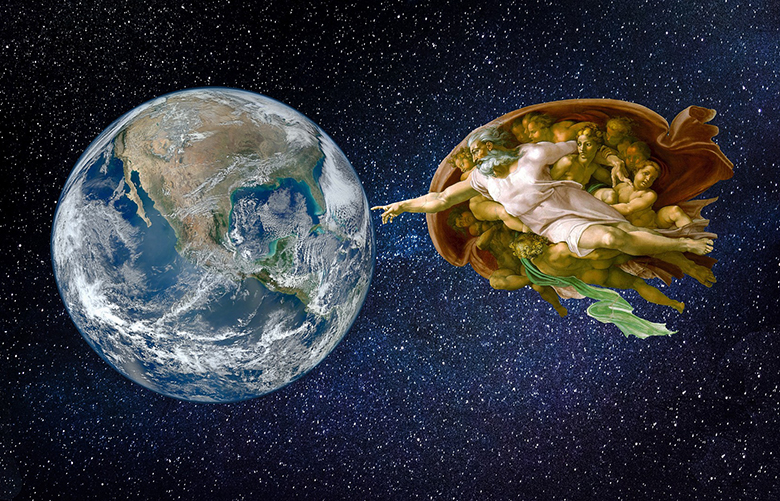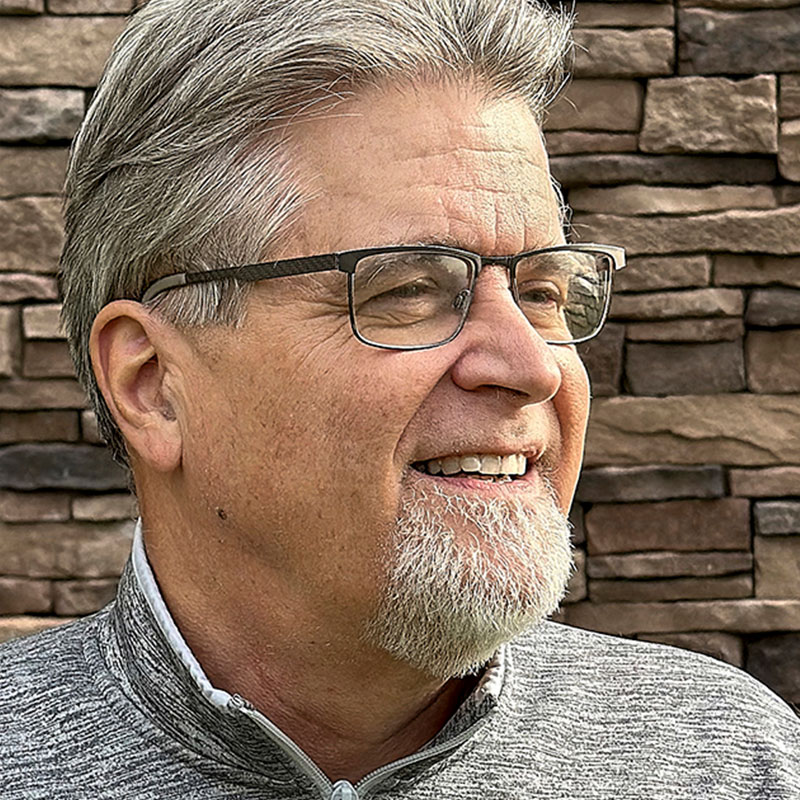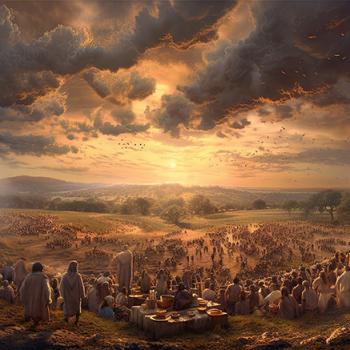
And a Compelling Solution
In part one of this article, I listed the first 5 problems associated with belief in an omnipotent, all-powerful God. Before continuing to read below, I encourage you to read that post first at 10 Serious Problems with an Omnipotent God – Part 1. I am attributing the ideas for this article to Thomas J. Oord whom I interviewed on my podcast and who recently wrote The Death of Omnipotence and the Birth of Amipotence.
An all-powerful God controls all of life and history. Nothing happens that he hasn’t ultimately willed supposedly for the ultimate benefit of his creation. He is the sovereign Lord over the whole cosmos, and exercises his rule, authority, and control over all things. As we have seen, this is an extremely problematic proposition when coupled with the belief that God is also all-loving.
If God has power to do anything he wants and cares for and loves all of humanity, why doesn’t he prevent evil things from happening to his loved ones? If God is all-loving and wants the best for all people and he’s all-powerful to accomplish anything, why do so many people have to endure poverty? Why are so many people seriously ill, sexually and physically abused, raped, tortured, enslaved, traumatized, and murdered? Why do people suffer or die from earthquakes, floods, tornadoes, car accidents, diseases, and other tragedies?
One other problem listed earlier given an almighty, beneficent God operating in these scenarios, is the appearance that this God seems to downplay the pain of the victims of evil and natural disasters. If “God is love,” then how could he not care if people suffer like this? If he has the power to prevent evil and the unnecessary suffering of humanity, why doesn’t he? Can it really be attributed to original sin, free will, or that God allows evil to produce some greater good? Again, the first article addresses these questions. In this context, the belief in an omnipotent, almighty God creates other problems, namely it…
6 – Encourages Belief in Young-Earth Creationism and Science Denial
In the first article, I said belief in divine omnipotence supports the false belief in the inerrancy of the Bible: “If God controls everything and has the power to dictate history, then it stands to reason that he would guarantee the texts that tell his story [the Bible] would be written without error. He would [then] safeguard those texts to be copied and translated correctly and reliably throughout time.” The issue is this: a literal reading of books like Genesis combined with a belief that all assertions made in that text are infallible leads people to distrust modern science. Genesis claims a seven-day creation, a worldwide flood, and that two or more of each created animal were saved on a boat, etc. These clash with what modern science tells us is possible. Whenever science comes out with an explanation for a process like the emergence of the animal kingdom and humankind, the geologic formation of earth, or the impossibility of a worldwide flood, religionists who believe in inerrancy and omnipotence will always side with the scriptures over science. This is dangerous territory.
Yes, there are some believers who believe in an old earth or that Noah’s flood was regional not global. Yet, if they are biblical inerrantists, they would still side with the scriptures rather than science when another contradiction presented itself that couldn’t be explained away by some other interpretation of the Bible. This is risky theology because it impedes our ability to fight real threats to earthly existence like climate change, environmental degradation, and infectious diseases. Believers in an all-powerful God have a hard time getting past the primacy of the scriptures for guiding all of life and therefore will tend to be skeptical of certain scientific claims. This is why science denial is so prevalent among groups like evangelicals.
7 – Causes Angst for Those Who Haven’t Had Spiritual Experiences
If a believer adheres to an almighty loving God who controls everything, he or she may wonder why some believers seem to have ethereal spiritual experiences while others don’t. Especially if they are the ones who haven’t had such experiences. At some point, why wouldn’t an all-powerful compassionate God reveal himself/herself to everyone, especially to all true believers? One may think, why do all these other people have direct experiences with God and I don’t, despite my asking him? Or, why were these other people supposedly healed from a sickness or disease through prayer and I or my child wasn’t despite the prayers I offered up? I know from my own experience wondering, why wasn’t I miraculously healed from clinical depression despite pleas to God and one supposed exorcism? (Eventually I was healed through a process of cognitive therapy). Or, why weren’t people healed from a serious medical condition or why hasn’t someone felt God’s presence in a real way despite promises to the contrary.
These examples cause angst and doubt and even existential crises for many people. Believing in an all-powerful God who hasn’t shown up despite pleas and prayers is a problem, especially if this God appears to have shown up for others. But what if God is not all powerful and really can’t control these things to such a level? Maybe the anxiety over this is unwarranted when we come to see that God actually can’t do everything. There are other conditions at play. But is this God worthy of worship? We will soon see.
8 – Contradicts Our Experience with Sexual Orientation and Gender
When I was beginning to deconstruct evangelicalism, I encountered the story of Mel White. He wrote the book, Stranger at the Gate: To Be Gay and Christian in America. White was a committed evangelical and professional author and speechwriter who worked or ghost wrote for the likes of Ollie North, Jerry Falwell, Jim Bakker, Pat Robertson, and Billy Graham. What none of these people or his church knew was that White was gay. His book details his experience being a closeted gay man in the evangelical movement. He didn’t want to be gay. He tried to pray it away. Because evangelicals told him homosexuality is sinful and not compatible with following Jesus, he pursued concerted prayer, counseling, exorcism, and electric shock therapy. Nothing worked. He finally realized it was all a lie. Being and practicing a gay lifestyle was not sinful. Acting in unloving ways was.
Since then, I’ve read many books with similar stories. I’ve read the wide range of literature that shows from scripture, psychology, personal testimonies, and failed ex-gay movements (e.g. Exodus International) that the conservative Christian stance on LGBTQ issues does not hold water. A good friend of mine I worked with on the mission field came out as gay. I came to understand the gay, lesbian, bisexual, and trans experience in a new light. Today, the evidence against the traditional view, from our experiences on how sexual orientation and gender identification works and the scholarship on biblical texts and interpretation, is overwhelming.
Yet the belief in an omnipotent God often drove the anti-gay evangelical movement. After all, if God is all-powerful, he can make male and female in fixed physical and psychological orientations. Anything that deviates from that must be a rebellion against God’s created order. But what if God is not as powerful as we think? What if heterosexuality is not always the born attribute of an individual? What if a person’s formative experiences influence sexuality to a degree that God cannot override them and has no real reason to do so? What if God cannot change someone from gay to straight and supports and celebrates when individuals choose the sexual orientation that is natural to them?
9 – Creates a Guilty, Morally Reprehensible God
If God has power to singlehandedly prevent evil and doesn’t do it, then what kind of God is this? Traditional believers typically try to rescue God from the implication that he is not ultimately good if he is perfectly capable but chooses not to stop pointless pain and unnecessary suffering. Ways to do this include: saying that God allows evil to punish sin; or he uses painful experiences as a training ground to develop one’s character; or evil comes from the devil and demons whom God temporarily allows to act; or that God allows evil to achieve some greater good; or that God wants people to be free which overrides his desire to help victims; and finally that it’s all a mystery and we just need to trust that God is almighty even though it doesn’t appear that way.
But none of these attempts really work. Especially when someone or their family member experiences evil personally—rape, torture, abuse, murder, accident, earthquake, war, disease, death, or another painful experience. “A loving and omnipotent God could and should have stopped what I [or they] endured!” (Oord, The Death of Omnipotence, page 85). Even if suffering is redeemable, which I think it is, there’s still a problem. If God can help you endure suffering if not eliminate it and you can use your experience to do good to others, this still begs a question for a sufferer: Why did my son have to die of this debilitating disease so I could set up a nonprofit to fight the disease? Couldn’t God have prevented it from happening in the first place?
What we’re left with is this: If God can prevent pain and evil but chooses not to, then this is arguably a morally, reprehensible god. As human beings, especially parents who love their children, we would probably do anything to prevent them from suffering some horrendous pain or horror if we had the power to do so. Then why doesn’t God?
10 – Is an Atheist Maker
If people are not willing to accept the excuses listed above and they can’t think of an explanation that makes sense to them, then they often turn to a non-theistic philosophy. Because the only position for belief in the divine is a reprehensible one, they reject the notion of God altogether and become an atheist. “If God could have prevented but ‘let’ this horror happen, this child’s painful death, this ancestor’s enslavement, this people’s holocaust, for His own inscrutable reasons—to teach, to punish, to test—then atheism is the only answer” (Catherine Keller in Oord, The Death of Omnipotence, page 85).
The problem of evil is probably the number one reason people become atheists. They reach the conclusion above through experiences or philosophical reasoning based on what they perceive to be the only options. During my deconstruction of evangelicalism and subsequent rebuilding of a reformed faith, I never seriously considered atheism. Why? Because I had profound experiences with what I perceived to be the love of God, I couldn’t accept materialistic explanations for the origin of life itself, genetic information, and consciousness, and I philosophically determined there was something that prevented me from going there. I called it the problem of love. If there is no God, where did this powerful force come from that drives people to seek love, be attracted to it, find meaning in it, spread it, and sometimes lay down their life for it? Why do we have this disposition to know what true goodness is? Why do we even call it out (if we’re honest) when someone describes a morally reprehensible God?
In the next article, I will address the problem of evil in the world, explain more about the problem of love, and introduce the notion of a rational, non-all-powerful God whose nature is uncontrolling love. This will resolve the 10 problems and open up a whole new paradigm on the probability of what a divine, higher power may or may not be.
************
Michael Camp tends the Spiritual Brewpub, which helps disillusioned or post-evangelicals uncover historical facts and insights that help them deconstruct, rethink, and rebuild a more authentic faith or spirituality. He is the author of Breaking Bad Faith: Exposing Myth and Violence in Popular Theology to Recover the Path of Peace. To get specific help deconstructing conservative Christianity and rebuilding healthy faith, see Michael’s Religious Deconstruction Workshop.














